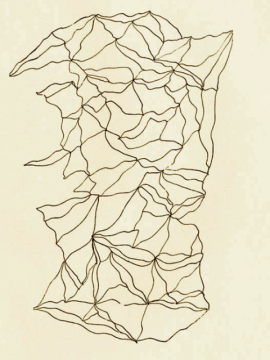Recognition
Brian Garrison
They wanted roses. They wanted tulips. They wanted chrysanthemums. But the first flowers blooming on Venus were harebells. The brilliant blue heads trumpeting out to star-sharp points. Colonists wanted to see a flower they could name— wanted to hear the names they knew. Beauty is fine, but their overpowered brains wanted to reduce the curl of petals, the slenderness of stems, the gentle swaying in the wind, to language. And for a time, before they knew what to call them, everyone praised the bobbing blooms exclaiming, "There they are! The beautiful flowers with their soft, spear-tip leaves. I only wish I could remember what to call them."
The science inspiring the piece:
I am fascinated by the way our memory, object recognition and categorization, and basic perception is surprisingly malleable. We tend to think that our eyes, nose, tongue, hands, ears, etc. give us a clear picture of the world, but that's not true. Our experience of the world is heavily influenced by language, naming or branding, and expectations.
There are many psychology and neuroscience principles that relate to this poem. In searching for a particularly relevant citation, I came across this one that so nicely demonstrates that Shakespeare was incorrect with his thought experiment about "a rose by any other name."
Life is complicated, and a Pollyannaish outlook isn't the solution. Especially knowing that chasing happiness is a fraught endeavor.
However, this poem is partially a plea for readers to find the beauty that exists wherever they may find themselves. Appreciate the flowers that grow.
Listen to Brian read the poem:


